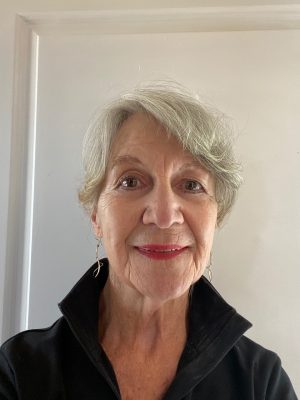 Maybe you are one yourself? Here is good news. Clinician Steve Moser at Taos Behavioral Health (TBH) will be starting a new educational group for men focusing on avoiding and reducing anger and learning nonviolent conflict resolution. The group will be using the curriculum developed over a 16-year period for the Nonviolence Awareness Classes (NAC) at TBH.
Maybe you are one yourself? Here is good news. Clinician Steve Moser at Taos Behavioral Health (TBH) will be starting a new educational group for men focusing on avoiding and reducing anger and learning nonviolent conflict resolution. The group will be using the curriculum developed over a 16-year period for the Nonviolence Awareness Classes (NAC) at TBH.
Culturally Sensitive Options
The classes are appropriate for men ages 18 and above. A variety of experiences and ages are encouraged as the differences help give authentic meaning to the 13-week themes discussed in the classes. The curriculum was developed at TBH by a team of clinicians and educators who discovered—after an exhaustive review of curricula on men and anger, that the only culturally sensitive options were developed for African American audiences. So, Robert Anaya, Moser and others developed lessons with sensitivity to Hispanic and Native American values and practices. Over the 16 years offering the course, attendees were 50% Hispanic, 25% Native American and 25% Anglo.
A Positive Life Outcome
After a break of 2 years, Moser has been receiving requests from professionals in social services, in education and from former attendees and their families to resume the service. Moser knows that the classes were successful from attendees’ quotes and changes they observed. Men reported improved relationships at work, with partners and children. “Every man should take this class” and “This should be offered in high school” were two of the quotes received.
In addition, Moser and his co-leaders know that none of the attendees have served long-term incarceration, there have been no incidents of suicide and no men serving time for murder. “The investment in this class pays off!” Moser declares. It costs around $40,000 to house an inmate in state or federal prison and public assistance costs for dependent partners and children is a high price. “Prison damages people.” states Moser. “They come out changed and not able to positively contribute to society. We are a successful intervention/prevention service to create a more positive life outcome.”
Thirteen Lessons
The thirteen lessons in the class are a unique blend of psychology, neuroscience, and culture. Each class has a one-page hand out with the major concepts discussed. The first class often brings the men up short—it asks them to reflect on what their goals are for change in themselves. And how would their family, friends and “the system” want them to change?
The complete list of topics is: setting goals, violence, nonviolence, neurobiology of violence and trauma, feelings, needs, self-defeating behaviors, anger reduction and conflict avoidance, fathering, healthy masculinity, culture, communication, honor and courage and change.
Many of the attendees have never thought about these topics or learned tools to use to manage their emotions. Most importantly, they have never talked about these topics with other men—who have had similar experiences.
Creating a Toolbox”
A strong emphasis in the classes is teaching men new tools. They may strike out because they do not recognize their own rising anger. They may hit because they have no other skills to manage anger. So, in this safe and loving environment, they create a toolbox. “I act as ‘Uncle Steve’” Moser says. “We walk with these men as they go through their journey of learning and change. I am always loving with them. But I do tell them that the only thing I will never do is lie to them.” And we make certain that two men who lead the class have personally experienced gang membership, family violence and anger management crises.
The class will meet for 1 ½ hours every Tuesday evening 6:00-7:30 beginning August 9 at TBH
Call 575-758-4297 to sign up. Most insurance will cover the service and TBH staff will file for payment with the companies. If insurance does not cover the fee, ($25 per class) a sliding scale is also available.
TBH has the largest staff of licensed and credentialed behavioral health workers in northern New Mexico. We can be reached at www/taosbehavioralhealth.org, 105 Bertha St, in Taos or 575-758-4297.
Mary McPhail Gray is the chair of the TBH board and can be reached at 575-779-3126.

